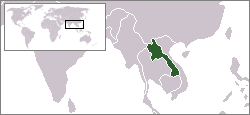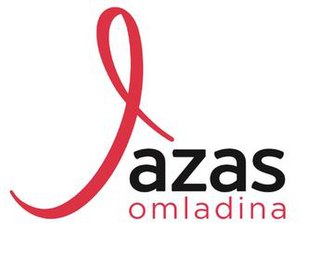The International AIDS Society (IAS) is the world's largest association of HIV/AIDS professionals, with 11,600 members from over 170 countries as of July 2020, including clinicians, people living with HIV, service providers, policy makers and others. It aims to reduce the global impact of AIDS through collective advocacy. Founded in 1988, IAS headquarters are located in Geneva, and its president since August 2022 is Sharon Lewin.
Co-founder of Jamaica AIDS Support for Life, Ian McKnight served as Executive Director for this organization from 1991 until 2002. Later he worked as Director of Targeted Interventions and Director for Social Marketing and Public Education with JASL. He then worked as Violence Prevention Specialist and Media and Communications Specialist on JA-STYLE, a USAID-funded/Ministry of Health adolescent reproductive health project.

Sex workers' rights encompass a variety of aims being pursued globally by individuals and organizations that specifically involve the human, health, and labor rights of sex workers and their clients. The goals of these movements are diverse, but generally aim to legalize or decriminalize sex work, as well as to destigmatize it, regulate it and ensure fair treatment before legal and cultural forces on a local and international level for all persons in the sex industry.
Population Action International (PAI) is an international, non-governmental organization that uses research and advocacy to improve global access to family planning and reproductive health care. Its mission is to "ensure that every person has the right and access to sexual and reproductive health, so that humanity and the natural environment can exist in balance with fewer people living in poverty". PAI's headquarters is in Washington, D.C.

HIV and AIDS is a major public health issue in Zimbabwe. The country is reported to hold one of the largest recorded numbers of cases in Sub-Saharan Africa. According to reports, the virus has been present in the country since roughly 40 years ago. However, evidence suggests that the spread of the virus may have occurred earlier. In recent years, the government has agreed to take action and implement treatment target strategies in order to address the prevalence of cases in the epidemic. Notable progress has been made as increasingly more individuals are being made aware of their HIV/AIDS status, receiving treatment, and reporting high rates of viral suppression. As a result of this, country progress reports show that the epidemic is on the decline and is beginning to reach a plateau. International organizations and the national government have connected this impact to the result of increased condom usage in the population, a reduced number of sexual partners, as well as an increased knowledge and support system through successful implementation of treatment strategies by the government. Vulnerable populations disproportionately impacted by HIV/AIDS in Zimbabwe include women and children, sex workers, and the LGBTQ+ population.

HIV/AIDS was first detected in Canada in 1982. In 2018, there were approximately 62,050 people living with HIV/AIDS in Canada. It was estimated that 8,300 people were living with undiagnosed HIV in 2018. Mortality has decreased due to medical advances against HIV/AIDS, especially highly active antiretroviral therapy (HAART).

Lesbian, gay, bisexual and transgender (LGBT) rights in Laos go unreported and unnoticed. While homosexuality is legal in Laos, it is very difficult to assess the current state of acceptance and violence that LGBT people face because of government interference. Numerous claims have suggested that Laos is one of the most tolerant communist states. Despite such claims, discrimination still exists. Laos provides no anti-discrimination protections for LGBT people, nor does it prohibit hate crimes based on sexual orientation and gender identity. Households headed by same-sex couples are not eligible for any of the rights that opposite-sex married couples enjoy, as neither same-sex marriage nor civil unions are legal.

Yugoslav Youth Association Against AIDS – Youth of JAZAS is non-profit, humanitarian organization committed to HIV prevention and support to the people living with HIV. Ever since its establishment in 1994, it has continuously been implementing projects of peer education, social and psychological support, protection of human rights, promoting voluntary activism, distribution of condoms etc.
Aditya Bandopadhyay is a lawyer and LGBTQ rights activist in India, helping to challenge anti-sodomy laws, establishing advocacy organizations and providing legal services to HIV/AIDS organizations.

Equality Florida is a political advocacy group that advocates for civil rights and protections for lesbian, gay, bisexual, transgender, and queer (LGBTQ) residents of the U.S. state of Florida.
Stigma Action Network (SAN) is an international network focused on research, education and advocacy concerning HIV stigma and discrimination reduction.

Founded in 1999, Alliance India is a non-governmental organisation operating in partnership with civil society, government and communities to support sustained responses to HIV in India that protect rights and improve health. Complementing the Indian national programme, we build capacity, provide technical support and advocate to strengthen the delivery of effective, innovative, community-based HIV programmes to vulnerable populations: sex workers, men who have sex with men (MSM), transgender people, hijras, people who inject drugs (PWID), and people living with HIV.
Asia Catalyst is an independent organization that builds strong civil society and advances the right to health for marginalized groups in Asia. It trains community-based organizations (CBOs) to meet high standards of effective and democratic governance, to establish a stable foundation for future growth, and to conduct rigorous human rights research and advocacy. It is an independent organization that places the needs of marginalized communities at the center of national, regional, and international policy making.
Cheryl Overs founder and former first director of the Prostitutes Collective of Victoria, the Scarlet Alliance in Australia and the Global Network of Sex Work Projects. Born in Melbourne, Australia in 1957 and educated at University High School and La Trobe University. Overs set up organisations, oversaw events and authored texts that established the place of sex workers rights within the global response to HIV/AIDS.

The David Bohnett Foundation is a global private foundation that gives grants to organizations that focus on its core giving areas – primarily Los Angeles area programs and LGBT rights in the United States, as well as leadership initiatives and voter education, gun violence prevention, and animal language research. As of 2022, the foundation has donated $125 million to nonprofit organizations and initiatives.

Suriname Men United (SMU) is a non-governmental organization (NGO) established under national Surinamese law with the overall objective to improve the well-being of men who have sex with men (MSM) in Suriname. To realize its goal, SMU carries out a variety of activities in the areas of research, prevention, education, psychosocial care, and human rights advocacy.

Global Network of Sex Work Projects (NSWP) is an organisation that advocates for the health and human rights of sex workers. It is a private not-for-profit limited company, based in Edinburgh, Scotland, and founded in November 1990. NSWP is a membership organisation, with members from five regions. NSWP publishes resources, including briefing papers, policy briefs, community guides, global and regional reports, smart guides, statements, the Research for Sex Work Journal, and case studies. It supports the decriminalisation of sex work.

Dr. Robert Carr was a Trinidadian scholar and human rights activist who dedicated his life to bringing public attention to issues related to stigma and discrimination against persons living with or affected by HIV/AIDS.

The health access and health vulnerabilities experienced by the lesbian, gay, bisexual, transgender, queer or questioning, intersex, asexual (LGBTQIA) community in South Korea are influenced by the state's continuous failure to pass anti-discrimination laws that prohibit discrimination based on sexual orientation and gender identity. The construction and reinforcement of the South Korean national subject, "kungmin," and the basis of Confucianism and Christianity perpetuates heteronormativity, homophobia, discrimination, and harassment towards the LGBTQI community. The minority stress model can be used to explain the consequences of daily social stressors, like prejudice and discrimination, that sexual minorities face that result in a hostile social environment. Exposure to a hostile environment can lead to health disparities within the LGBTQI community, like higher rates of depression, suicide, suicide ideation, and health risk behavior. Korean public opinion and acceptance of the LGBTQI community have improved over the past two decades, but change has been slow, considering the increased opposition from Christian activist groups. In South Korea, obstacles to LGBTQI healthcare are characterized by discrimination, a lack of medical professionals and medical facilities trained to care for LGBTQI individuals, a lack of legal protection and regulation from governmental entities, and the lack of medical care coverage to provide for the health care needs of LGBTQI individuals. The presence of Korean LGBTQI organizations is a response to the lack of access to healthcare and human rights protection in South Korea. It is also important to note that research that focuses on Korean LGBTQI health access and vulnerabilities is limited in quantity and quality as pushback from the public and government continues.
INPUD is an international non-profit organization grouping local groups and collectives of people who use illicit drugs, which aims at "A world where people who use drugs are free to live their lives with dignity." INPUD was founded in 2006 in Vancouver, Canada, and formally launched in Copenhagen, Denmark, on 1 November 2008.











